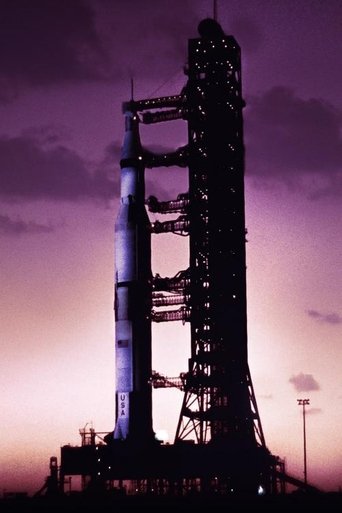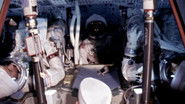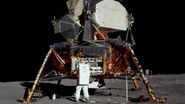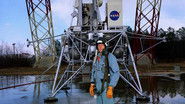
Rating:
0/10 by 0 users
Space Race Firsts
This episode features the important "firsts" of the Apollo program. From the first satellite launched by the Soviets called Sputnick; to the first man who flew in space named Yuri Gagarin; the first spacewalk to the first live broadcast in space, many of the monumental achievements of the space race are documented.
Writing:
Release Date:
Tue, Jul 09, 2019
Country: US
Language: En | De
Runtime:
Country: US
Language: En | De
Runtime:
Season 1:

Before Apollo, there was Gemini, and before Gemini, there was the Mercury program. This episode examines Mercury, the first U.S. program to put a man in space. It looks at the people, such as astronaut John Glenn, the events, such as Alan Shephard's first flight to low earth orbit, and the triumphs of this precursor to Apollo.

This episode features the important "firsts" of the Apollo program. From the first satellite launched by the Soviets called Sputnick; to the first man who flew in space named Yuri Gagarin; the first spacewalk to the first live broadcast in space, many of the monumental achievements of the space race are documented.

This episode chronicles several of the major decisions that define the Apollo mission including: the decision to use a lunar module that detached from the command module rather than one giant spaceship landing on the moon; the decision to have Neil Armstrong be the "first man," and the controversy around it; and the surprising decision on who should be the first astronauts.

Three very different, uniquely talented men came together to form the crew of Apollo 11. Neil Armstrong, the skilled pilot, Buzz Aldrin, the astronaut with a PhD, and Mike Collins, the well-liked pilot of the command module. This episode looks at all three men, not only in their professional capacities, but their personalities as well. They were, as Mike Collins described them, amiable strangers.

Before Apollo, there was Gemini, and before Gemini, there was the Mercury program. This episode examines Mercury, the first U.S. program to put a man in space. It looks at the people, such as astronaut John Glenn, the events, such as Alan Shephard's first flight to low earth orbit, and the triumphs of this precursor to Apollo.

400,000 people worked in putting a man on the moon. This episode looks at some of the prominent, and not so prominent players who played their parts, including: Frank Borman and Bill Anders, astronauts of Apollo 8; Werner Von Braun, the German scientist who led the team of American scientists and engineers; and Bill Tindall, whose memos to astronauts, scientists, and engineers were indispensable.

This episode examines some of the popular notions surrounding the Apollo program and discerns whether they are fact or fiction. These include: were Neil Armstrong's words when he stepped on the moon scripted by Nasa? Products such as Velcro and Teflon are thought to be invented during the space program: true or false? These and more are featured in Fact or Fiction.

Apollo was a "central project" that is generally thought to be one of the greatest achievements in the history of mankind. Experts debate the positive and negative aspects of Apollo with an eye towards deciding: Was it worth the enormous costs?




















